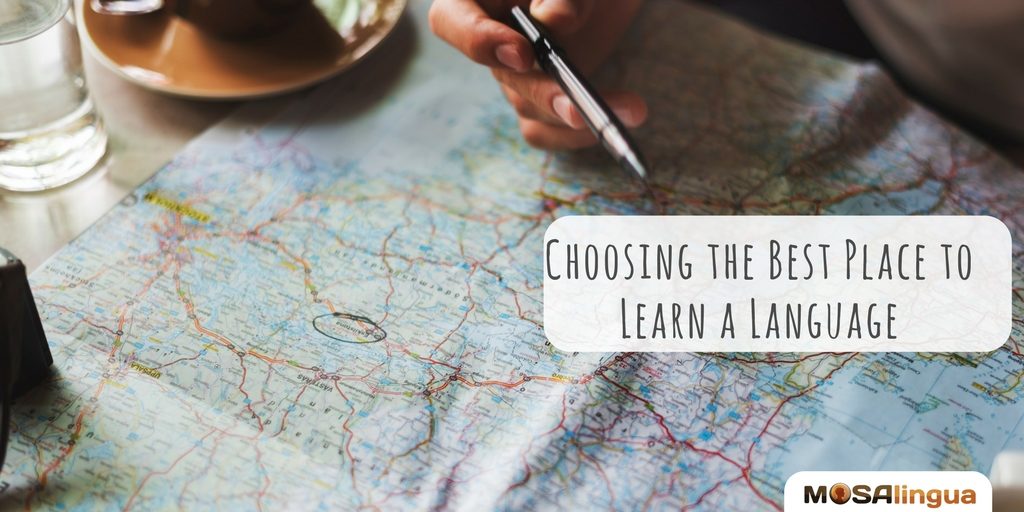Total immersion in the language you’re trying to learn or perfect is one of the most effective options to improve your skills in a short period of time. Nevertheless, it’s no easy task choosing the best place to learn a language and stay for a long period of time. In this article, we’ll give you a few suggestions on how to choose the perfect place to learn a second language.

First off, when choosing the city you would like to visit, don’t choose the capital city, especially in Europe. Large, multicultural cities tend to be the most common cities for tourists, students and professionals who speak more than one language — including English.
In these cities you will also find “colonies” of expats. It may sound fun but it causes a problem, because you will naturally connect with people from your own country and spend more time with them. Meanwhile, you neglect your main goal of learning to speak with — and like — the natives!
As a consequence, your growth in the second language will dramatically reduce. After time, your social circle becomes too similar to that in your native country. However, if you decide to go to a smaller city, in which you typically find less foreigners, you will connect and converse more with the locals. Your main objective is to “force” yourself to practice the language. It’s the only option for communicating naturally and immersing yourself in the culture, which is… the fun part! Right?

I hope this brief article has been helpful. We wish you the best of luck in your search for the best place to learn a language!
Related posts:
Start learning a new language today

Good news: we can help!
More good news: you can get started for free! Start your free trial now and for the next 15 days, take advantage of the most effective language learning method on the market!
Vocabulary flashcards, videos with subtitles, audiobooks, articles adapted to your level – with MosaLingua Premium (Web & Mobile), you’ll have access to all this and more. Get started right now. It’s free—and risk-free—to try!


![Are Language Certificates Useful? [VIDEO]](https://www.mosalingua.com/en/files/2018/02/1-1-300x169.jpg)

Comments